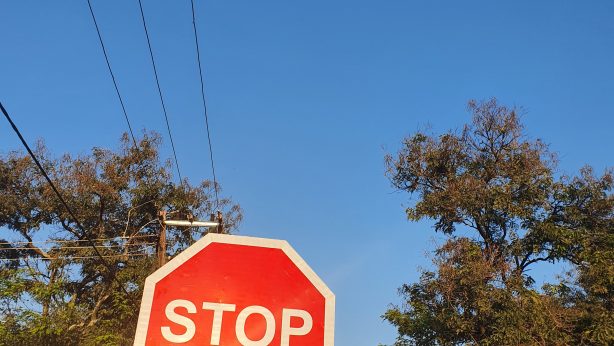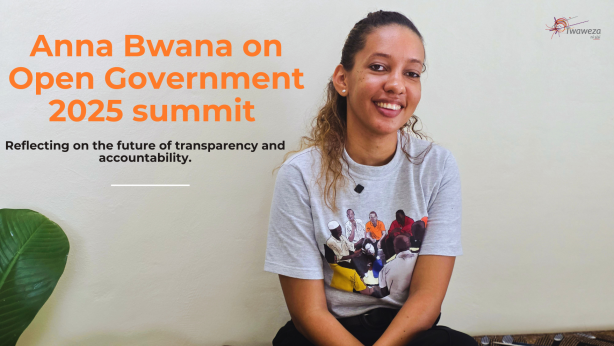Harnessing CSO Voice to Amplify Citizens’ Voices on the Status of Devolution
Devolution is only as strong as the voices that shape it.
Over twelve years since the adoption of devolution as a system of governance in Kenya, conversations about its impacts on the citizenry abound. One of the objectives of devolution, as outlined in Article 175 of the 2010 Constitution, is to empower local communities to participate in development. Through devolution, governance is closer to citizens through the 47 sub-national governments. The constitution places a greater responsibility on citizens to participate in governance, informing the delivery of services and allocation of resources at the county level. Over twelve years since the adoption of devolution as a system of governance, what has been the place of the citizens in devolution? Have they been allowed to shape governance in their counties? Have their views been sought, and are they being communicated to the intended policymakers?
Devolution Conferences, which have been organised since the rollout of the devolved system of governance, provide spaces for in-depth reflection on the progress and pitfalls of devolution. Unfortunately, not all Kenyans can attend as the discussions are highly technical. So, even though citizens may have feedback about devolution, these views may never reach the spaces they ought to.
As the 2025 Devolution Conference approached, the Kenya Devolution CSOs Working Group, a coalition of CSOs from across the country, grappled with this challenge. How can a reflection of devolution be held without incorporating citizens’ perspectives? They designed a side event to be held at the Devolution Conference in Homabay County titled #DevolutionAt13: Citizens’ Perspectives.
The intention was to collect feedback from citizens through research and use it to inform/shape the side event, where they would engage policy makers with input from citizens.
Twaweza was drawn to this side event due to its framing and the idea of placing citizens’ feedback as the anchor upon which reflections on devolution with policy makers would take place.
To collate citizens’ views/perspectives on devolution, the KDCWG had commissioned a rapid assessment on devolution across the country. Seeing the strategic alignment, Twaweza sought to partner with the KDCWG and its other core partners—Uraia Trust, Kenya Human Rights Commission (KHRC), and Act Change Transform (ACT) — to convene representatives of CSOs and community representatives in a hybrid pre-devolution conference event. The event served three purposes: (a) Launch Twaweza’s Sauti za Wananchi report on Democracy and Participation, ( b) Present KDCWG’s report on the status of devolution ( from both quantitative and qualitative surveys), and ( c ) Use the convening to harmonise CSOs’ position on devolution in line with the survey reports shared.
The pre-devolution conference, convened by KDCWG, served as a timely platform to consolidate citizens’ perspectives before the official Devolution Conference. This space brought together CSOs, community leaders, grassroots representatives, and governance experts with a single purpose: to reflect on the status of devolution from the citizens’ perspective.
The goal was to amplify citizens’ voices, document their concerns, and channel them into the devolution conference, one of the policy spaces on devolution where decisions about Kenya’s devolved system are made.
The pre-devolution conference event, held at Waridi Paradise and attended by over 100, achieved these three objectives, resulting in a citizens-centred CSO position paper on Devolution. This position paper was a key ingredient to the policy-level discussions at the Devolution Conference.
At the heart of the discussions were citizens’ concerns about whether devolution has truly delivered on its promise. Voices from across the country highlighted both progress and persistent challenges. The key emerging issues were:
Accountability and Trust in Governance
Participants expressed deep frustration at the government’s failure to fulfil the president’s 2023 pledge to transfer devolved functions and resources within six months. While IGRTC confirmed some progress, they offered no clear timeline, further fueling mistrust. Overall, citizens emphasised the urgent need for transparency, accountability, and commitment to promises made in governance for
- Transfer of Devolved Functions
Participants raised concerns about the government’s failure to fully honour the president’s 2023 pledge to transfer devolved functions and resources within six months. The Intergovernmental Relations Technical Committee (IGRTC) admitted delays, noting that functional clarity had been achieved but that costing and complete transfer remain incomplete, with no clear timeline provided. This has fueled frustration and mistrust among citizens.
- Public Participation
The session highlighted the exclusionary nature of both the Devolution Conference and wider participation forums. The high cost of attending the 2025 conference (≈KSh 20,000 per person) was criticised as elitist and contrary to its “citizen-centred” theme. In addition, participation processes were seen as opaque and unrepresentative, with barriers such as inaccessible language, sidelining of PWDs and citizens with limited education, and profiling of community champions, especially whistleblowers, as “troublemakers.” Participants stressed that genuine public participation must be inclusive, transparent, and affordable.
- Accountability and Transparency
A recurring theme was the growing mistrust in both government and civil society organisations (CSOs). Government actors were seen as unaccountable, while CSOs were criticised for complacency, working too closely with state agencies, and failing to move beyond lamentation to solutions. Participants urged CSOs to take stronger positions by aligning more boldly with citizens, supporting grassroots solutions, amplifying youth voices, and offering litigation support to whistleblowers. Restoring trust will require a renewed culture of openness, integrity, and accountability across all governance spaces.
One participant summarised the sentiment powerfully: “Devolution will only work for us if we are not just invited to meetings, but our voices shape the actual decisions.”
The KDCWG and its partners ensured that the voices and perspectives of citizens, collected through surveys, regional dialogues, and the pre-devolution conference event, were not only documented but also translated into actionable recommendations that informed the press conference ahead of the #DevolutionConference2025.
At the conference, citizens’ perspectives formed a critical ingredient in the KDCWG side event; hence, the citizens’ insights generated fed directly into the official Devolution Conference, ensuring that discussions were not limited to government reports, official statistics, or technical conversations, but were grounded in the real experiences of citizens across Kenya.
The pre-devolution event underscored one undeniable truth: the future of devolution depends on how well it reflects and responds to the voices of citizens. CSOs remain committed to ensuring that devolution is not reduced to a government-driven process but remains a citizen-centred journey.
As Kenya continues to reflect on the gains and challenges of devolution at devolution conferences and beyond, tasks are clear-cut: (a
- Citizens must remain engaged, informed, and active.
- Both levels of government must listen, act, and be accountable.
- CSOs must continue to bridge the gap, ensuring that grassroots voices shape national governance discourse.
Whether or not devolution has indeed brought governance closer to people will be measured not by how much money has been disbursed to counties or how many regimes of county governments we have had or even how many devolution laws have been enacted, but by the extent to which citizens’ perspectives and lived realities are reflected in the devolved system of governance.
This post was written by Sarah Mwangi, Program Officer, Twaweza Kenya.


